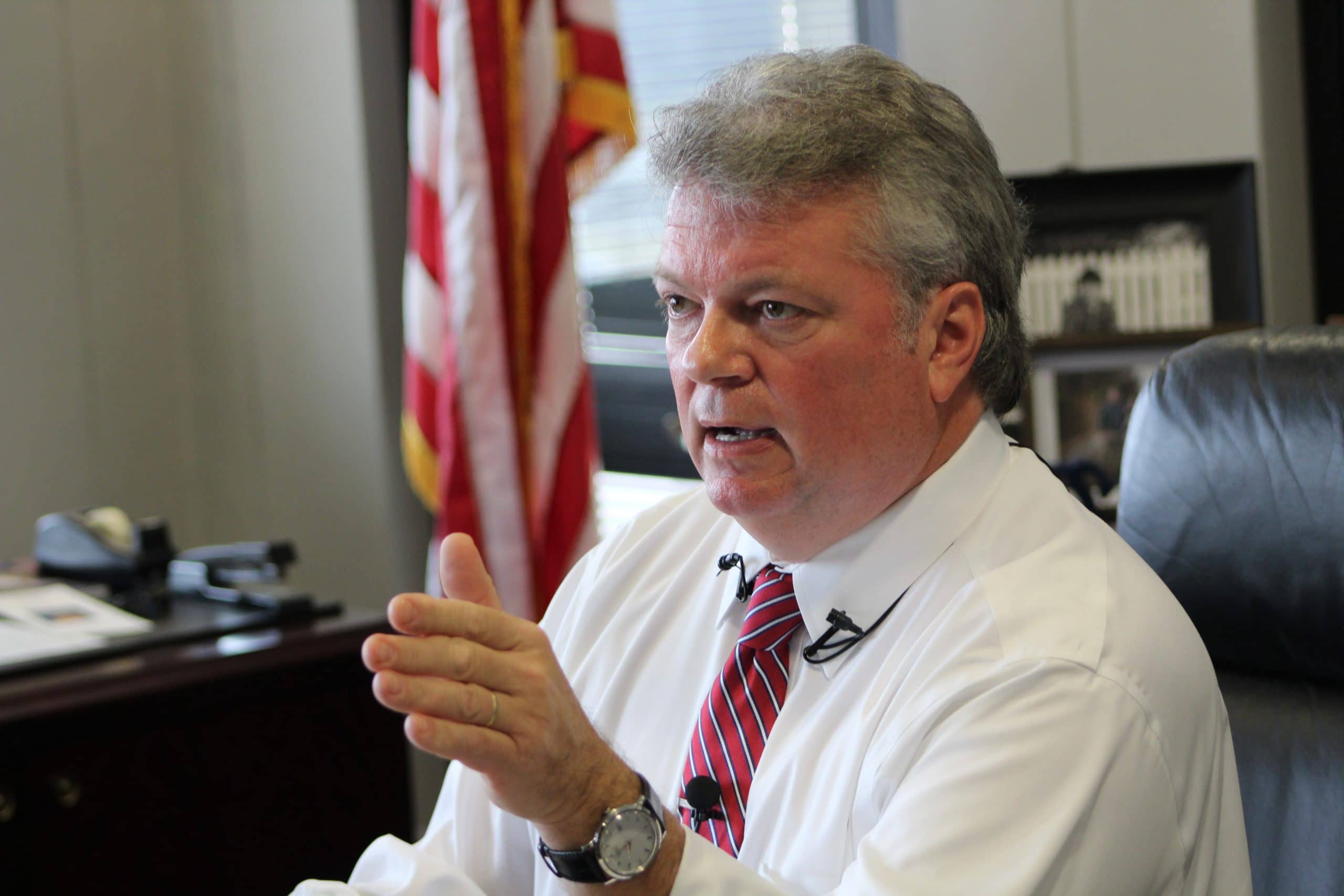Scam calls have continued to pop up on phones in Mississippi and across the country.
Attorney General Jim Hood has now joined a bipartisan coalition of 34 attorneys general calling on the Federal Communications Commission (FCC) to create new rules allowing service providers to block more of the illegal robocalls that are made to unsuspecting consumers.
The formal comment to the FCC follows comments previously made by Hood to the FCC regarding the ‘Telephone Consumer Protection Act’ and explains that scammers, using illegal robocalls, have found ways to evade a call blocking order entered last year by the FCC. The FCC’s 2017 Order granted phone service providers authority to block certain illegal spoofed robocalls and was a bipartisan victory for American consumers.
Despite the FCC’s Order, robocalls continue to be a major irritant to consumers and businesses across the country.
In 2017, the Federal Trade Commission received 4.5 million illegal robocall complaints—two and a half times more than in 2014. The Mississippi Attorney General’s Consumer Protection Division received nearly 2,000 reports in Fiscal Year 2018 with respect to scam phone calls and 405 since July 1 . Therefore, the attorneys general now seek broader authority for the providers to work together to detect and block more illegal spoofed robocalls—including “neighbor spoofing.”
“These calls aren’t just an annoyance. They are a safety concern,” General Hood said. “Our office often receives complaints regarding scam calls, many involving someone, especially the elderly, sending money to the scammer on the other end of the phone. The caller’s message is more believable when it is coming from a number the consumer recognizes.”
“Spoofing” allows scammers to disguise their identities, making it difficult for law enforcement to bring them to justice. “Virtually anyone can send millions of illegal robocalls and frustrate law enforcement with just a computer, inexpensive software and an internet connection,” the attorneys general wrote in the formal comment filed with the FCC.
“Neighbor spoofing” is a technique that allows calls—no matter where they originate—to appear on a consumer’s caller ID as being made from a phone number that has the same local area code as the consumer. This manipulation of caller ID information increases the likelihood that the consumer will answer the call.
In the formal comment, the attorneys general also expressed support for a new initiative, referred to by the acronym Stir / Shaken, which will give phone service providers the ability to authenticate and certify legitimate calls and identify illegally spoofed calls—even those coming from what are otherwise legitimate phone numbers. Service providers will be ready to launch this new authentication method in 2019.
To date, the FCC has not issued a notice of proposed rulemaking concerning additional provider-initiated call blocking. The attorneys general anticipate that further requests for comments will take place on this subject. The current comments concern illegal robocalls, which are made to consumers regardless of whether or not they sign up for do-not-call lists.
This summer, General Hood partnered with the Mississippi Public Service Commission to issue two consumer guides with information regarding robocalls for both mobile and landlines. The information guides consumers through their options on both the state and national level in registering for Do Not Call lists and reporting violations of those lists. The guides, which can be downloaded for free at this link, also include information on resources from mobile apps, phone carriers and cloud-based services, and built-in features on mobile phones.




